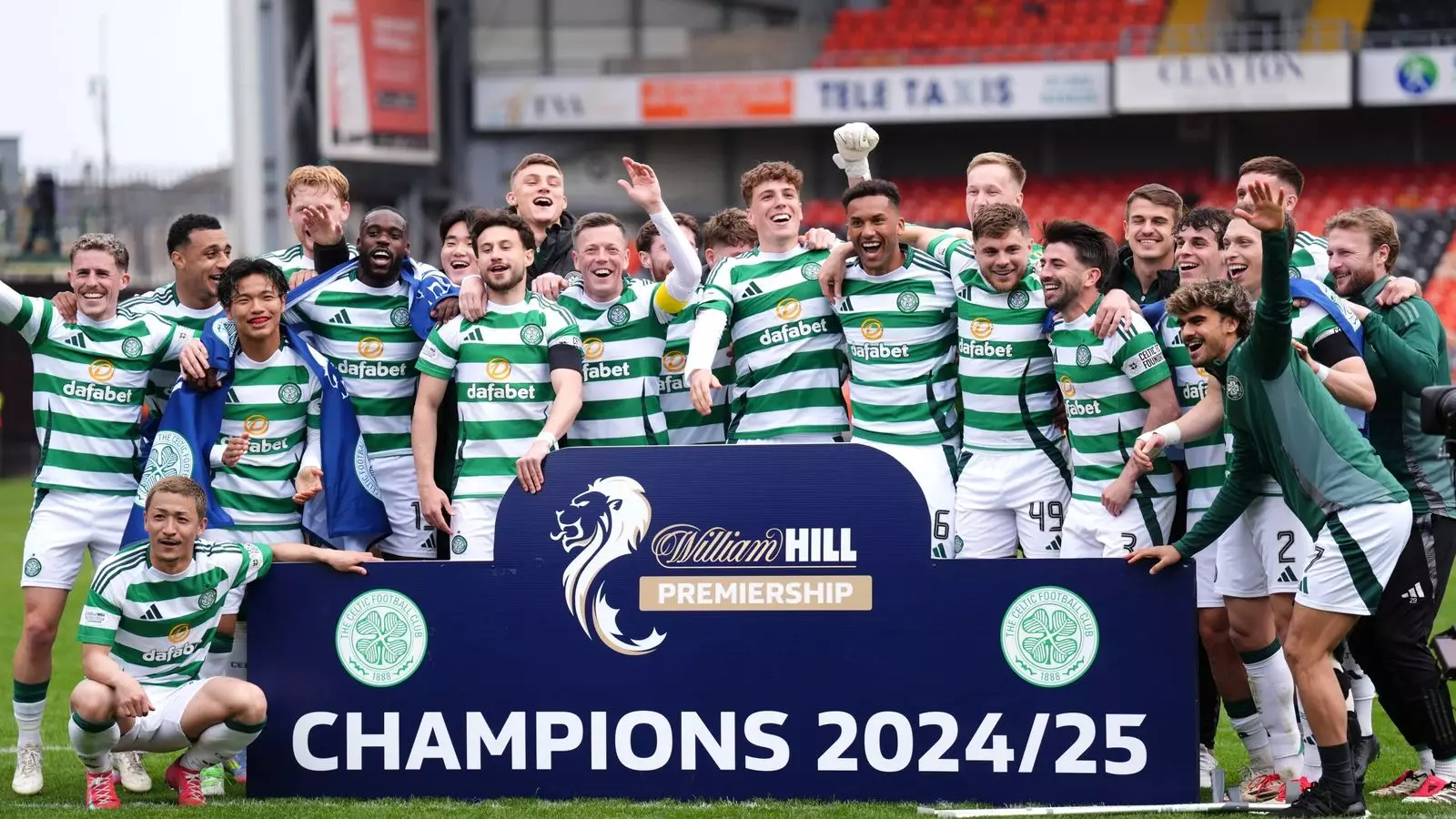Celtic’s triumphant victory over Dundee United, clinching their fourth consecutive Scottish Premiership title with a resounding 5-0 scoreline, is a feat that resonates within the annals of football history. Yet, amid the exuberance of their fans celebrating the club’s 13th title in 14 years, a significant and disheartening narrative unfolded. While Celtic basked in the glory of their triumph, their fervent supporters took to the stands armed with tangerines—symbolizing their protest against the exorbitant ticket prices imposed by Dundee United. It is a stark reminder that in this beautiful game, passion and devotion often clash violently with the economic realities of modern football.
Though Celtic celebrated yet another commendable achievement—potentially gearing up for their sixth treble in nine seasons under the stewardship of the ambitious Brendan Rodgers—this victory had a bittersweet aftertaste. The fans’ protest was not just an act of defiance but a reflection of a growing frustration. Rather than merely toasting their success, Celtic fans were compelled to voice their discontent regarding the soaring costs that are pricing away the very supporters who contribute to the soul of the sport.
Protesting Against Greed in Football
The catalyst for the tangerine toss was Dundee United’s decision to charge adult away fans upwards of £42 to attend the match, a stark contrast to the more palatable £10 tickets for home supporters. This glaring inconsistency ignited a wave of indignation, culminating in the colorful protest where fans chanted against being “priced out of football.” The innovative yet cheeky method of tossing fruit onto the pitch was not only a display of humor in the face of adversity but also an articulate commentary on how the commercialization of football has alienated genuine fans in pursuit of profit.
Football, once an emblem of community spirit and shared joy, has increasingly morphed into a business where financial exploitation of the loyal fans takes precedence. The question looms: are we, as enthusiasts and advocates of the sport, turning a blind eye to the systemic issues for the sake of entertainment? With clubs like Celtic flourishing while their fanbases struggle to afford entry fees, the dark undercurrent of greed threatens the very essence of the game.
A Heartfelt Tribute Amidst the Chaos
Adding to the emotional complexity of the day was a moment of collective reverence for Pope Francis, coinciding with his funeral. While Celtic and their supporters poignantly acknowledged this global event through banners and a minute’s silence, it felt like a juxtaposition against the tension generated by the protest. The juxtaposition of honoring a figure of compassion with the chaotic throw of tangerines encapsulates the duality of football: a beautiful game that can be ugly in its business dealings.
Moreover, the narrative surrounding Celtic’s manager, Brendan Rodgers, further complicates this spectacle. His passionate desire to maintain the club’s success—vowing to be “200%” committed for the next season—highlights the dissonance within the club’s hierarchy. While managers like Rodgers rally their teams and take on the weight of expectations, it is often the fans who bear the brunt of financial mismanagement and exploitation.
Community vs. Capital: The Emotional Dilemma
As I reflect on Celtic’s victory and the accompanying outcry, it becomes clear that this is not merely a moment in sports history but a potent commentary on the state of modern-day football. Even as Celtic revels in their achievements, the marginalization of fans due to ticket pricing becomes a glaring issue that cannot be overlooked. It’s a microcosm of a broader problem in sports—we see the encroaching influence of capital on community engagement, often sidelining the very supporters who constitute the teams’ core identity.
This dissonance between triumph and tribulation presents an emotional dilemma for fans—can one truly celebrate a victory when the sport they love is fraught with challenges that threaten its communal essence? As Celtic marches forward, vying for historic treble glory, their fans champion a vital cause against economic inequality. It’s a call for solidarity—a reminder that the heart of football lies not just in titles and trophies, but in the vibrant community that supports it.


Leave a Reply